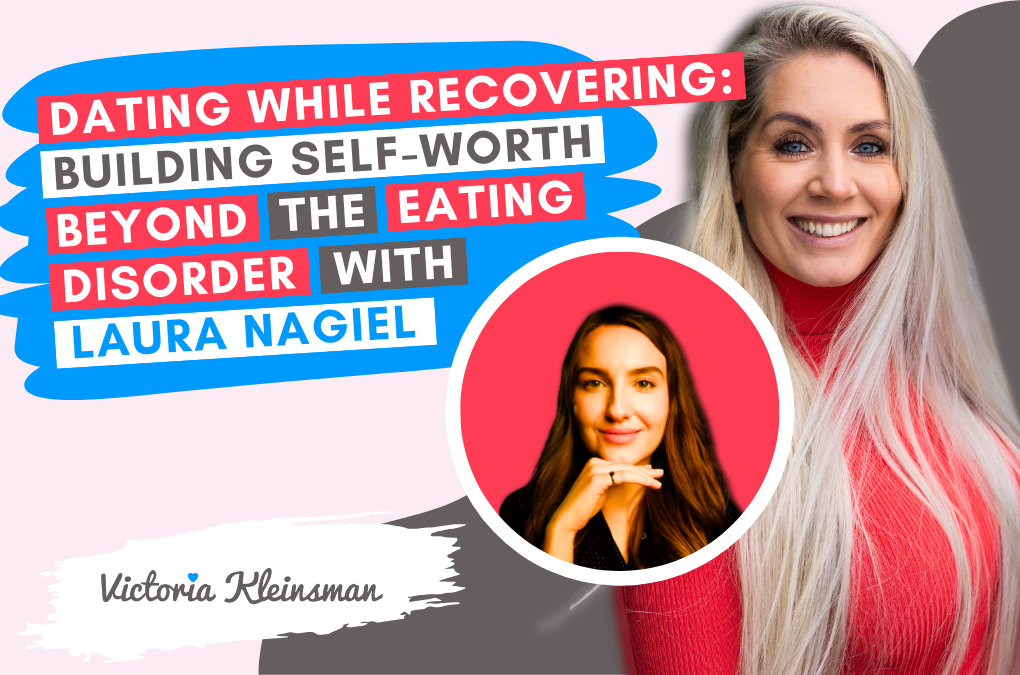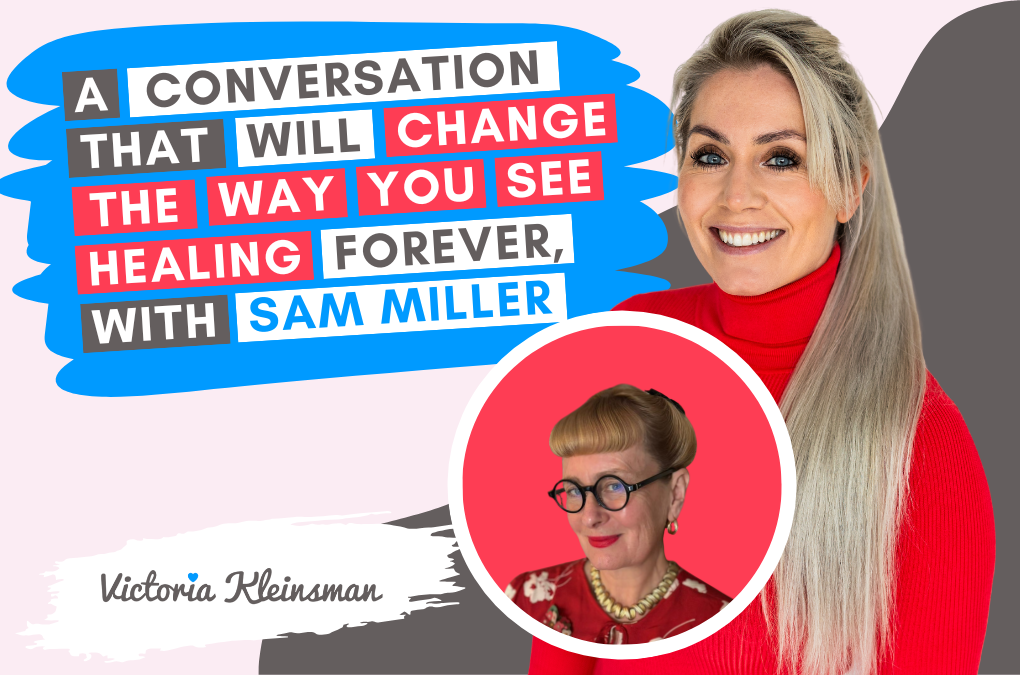Episode Overview
In this episode, Victoria Kleinsman dives deep into the topic of emotional eating, exploring its nuances, misconceptions, and the fine line between emotional eating and eating disorders. If you’ve ever felt guilt or shame around using food for comfort, this episode is a must-listen!
What You’ll Learn in This Episode:
Emotional Eating vs. Eating Disorders: The key differences and warning signs that emotional eating might develop into an eating disorder.
Why Judgment is the Real Problem: The moment self-judgment enters the picture, emotional eating can spiral into harmful cycles.
Practical Strategies for Emotional Eating: Why replacing food as a coping mechanism doesn’t work—and what to do instead.
Food Freedom & Body Acceptance: How to develop a healthier relationship with food and your body by embracing full permission.
Victoria’s Personal Journey: How lived experience plays a powerful role in eating disorder recovery.
Key Message for Those Struggling: The most important piece of advice Victoria would give to anyone battling emotional eating or an eating disorder.
Key Takeaways & Quotes:
“I don’t care what you eat—I care how you feel about what you eat.”
“Emotional eating is not a problem unless you make it one. It becomes an issue when judgment enters the picture.”
“If emotional eating is negatively affecting your life, get help—don’t wait until it spirals into a full-blown eating disorder.”
“Trying to ‘eat in moderation’ is still a form of restriction. True food freedom is allowing yourself full permission to eat.”
Resources Mentioned:
Join Victoria’s Free Support Group: https://victoriakleinsman.com/free-taste-test/
Need support? Contact Victoria: https://victoriakleinsman.com/apply/
Enjoyed this episode? Don’t forget to subscribe, rate, and leave a review to help more people find this message of food freedom and self-love!
Is Emotional Eating Really a Bad Thing?
Emotional eating—just the phrase itself tends to carry a heavy weight of guilt and shame. For years, diet culture has drilled into us the idea that eating in response to emotions is somehow wrong, a lack of willpower, or something we need to fix. But is emotional eating really a bad thing? And where is the line between using food as a coping mechanism and developing an eating disorder?
Emotional Eating vs. Eating Disorders—Where’s the Line?
Let’s be honest—everyone eats emotionally sometimes. Whether it’s celebrating with cake on your birthday, enjoying a comforting hot chocolate on a rainy day, or ordering a takeaway after a stressful week, food has always been connected to emotion.
So when does emotional eating become a problem? According to Victoria, it’s not about what you eat, but how you feel about it.
“If someone eats emotionally and they’re fine with it, then it’s just a coping strategy. It’s not a problem. It becomes a problem when they start judging themselves, feeling guilty, and trying to compensate—like restricting food the next day to ‘make up for it.’ That’s when it can spiral into binge eating or an eating disorder.”
Essentially, emotional eating on its own isn’t harmful—it’s our judgement around it that can turn it into something destructive. If eating to soothe stress or enhance joy comes without guilt, then it remains just another way of coping, like watching TV after a long day or taking a bath to unwind. But if it triggers self-criticism, restriction, or the cycle of bingeing and dieting, that’s when the warning signs of disordered eating start to appear.
Key Warning Signs of Disordered Eating
If you’re wondering whether your emotional eating has tipped into something more serious, consider these signs:
✅ Judging yourself for eating emotionally. Do you feel guilty, ashamed, or like you’ve “failed” after using food for comfort?
✅ Compensating the next day. Do you try to “undo” your eating by restricting food, skipping meals, or over-exercising?
✅ Constant food thoughts. Are you spending a lot of mental energy thinking about what you should or shouldn’t eat?
✅ Avoiding social situations because of food or body image. Are you saying no to plans because of how you feel about your body?
If these sound familiar, it might be time to seek support. As Victoria says: “If food is negatively impacting your life in any way, you deserve help. You don’t have to wait until things get worse.”
So, What Can You Do if Emotional Eating Feels Like a Problem?
If you’re someone who feels out of control with emotional eating, or you constantly judge yourself for it, the answer isn’t to force yourself to stop. In fact, trying to restrict or control emotional eating often makes it worse. Instead, Victoria suggests three key mindset shifts that can change your relationship with food and your body.
1. Stop Trying to “Fix” Emotional Eating—Show Yourself Compassion Instead
The first step is to remove the shame around emotional eating. Food is meant to be pleasurable, comforting, and enjoyable. There is nothing inherently wrong with eating emotionally.
“We are human. We have emotions. And food is one of many ways we cope. It’s okay. Stop beating yourself up for being human.”
Instead of labelling emotional eating as a problem, try meeting yourself with compassion. The next time you eat for comfort, pause and acknowledge it without judgement:
“I’m using food to soothe myself right now. That’s okay. I am allowed to comfort myself.”
Journal Prompts for Self-Compassion:
- How do I usually speak to myself after emotional eating?
- If my best friend ate emotionally and felt guilty, what would I say to them? Can I offer myself the same kindness?
- What are three ways I can comfort myself that don’t involve food but also don’t replace food?
2. Don’t Replace Food—Just Add Other Comforting Things
A common mistake people make when trying to stop emotional eating is forcing themselves to replace it with something else. They tell themselves, “Next time I want chocolate, I’ll just take a bath instead.”
Victoria warns that this approach often backfires because it reinforces the idea that food is the enemy—something that needs to be avoided or controlled. Instead of replacing emotional eating, she suggests adding in other forms of comfort alongside food.
“For me, chocolate was very relaxing and grounding. Instead of trying to replace it with a bath, I started bringing a cup of hot chocolate into the bath with me. That way, I still got the comfort I needed, but I also expanded the ways I soothed myself.”
Action Steps to Expand Comfort Without Restriction:
✅ Make a list of what food gives you. Does it bring stress relief? Comfort? Distraction? Energy? Identify what you’re truly seeking.
✅ Find other ways to meet that need. If food brings relaxation, what else helps you unwind? If food helps you feel cared for, what else can give you that warmth?
✅ Pair food with other comforts. If eating chocolate makes you feel better, enjoy it while journaling, listening to music, or watching a cosy film.
3. Redefine Body Acceptance—It’s Not About Loving How You Look
Many people think body acceptance means waking up every day loving what they see in the mirror. But true body acceptance isn’t about appearance—it’s about letting go of resistance.
“Acceptance is simply this: I am no longer fighting my body. It doesn’t mean you have to love the way you look, it just means you stop trying to change it all the time.”
When you stop resisting the way your body looks, you free up mental space to actually live your life—without waiting for a certain weight, size, or shape to give you permission.
Journal Prompts for Body Acceptance:
- What is my body allowing me to do today?
- How would my life be different if I no longer judged my body?
- What would I do differently if I fully accepted my body as it is?
Final Thoughts: You’re Not Doing Anything Wrong
If you take one thing away from this, let it be this: You are not failing. You are not broken. You are not weak for using food as comfort.
Food is meant to be enjoyed. Emotional eating is not the enemy—shame and restriction are.
So next time you eat emotionally, take a deep breath. Give yourself a break. Offer yourself kindness instead of guilt. Because at the end of the day, healing isn’t about controlling food—it’s about healing the way you think about food.
And you? You are already worthy of peace. Right now. Exactly as you are.





